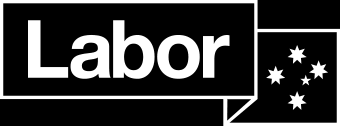The member for Groom has raised a motion to talk about homeownership. Sadly, his party wasn't so keen on housing during the decade they were actually in charge, let alone on taking action on any of the issues they've raised. I note that the member for Hughes—who doesn't look anything like the former member for Hughes!—was raising that immigration issue in relation to housing: a dog whistle so loud that the canines are complaining about it! It is shameful. And now what have we seen the opposition do? The only action they—and the Greens—have taken on housing is to say no. The message they're sending to Australians is, 'We don't want to help you into a home.' The Leader of the Opposition in the budget reply speech—that eagerly anticipated document—did not announce one dollar of funding to take action on housing issues. The Greens, in their relentless pursuit of headlines, have come up with a housing proposal that experts have already called a 'very expensive and arbitrary lottery'.
The coalition is a one-trick pony when it comes to superannuation. They see superannuation solely as personal savings to be raided for a home deposit. It doesn't matter that the member for Groom and his colleagues would decimate hardworking Australians' retirement funds and, with it, their long-term financial security. Independent economist Saul Eslake described the idea of using superannuation for a housing deposit as 'one of the worst public policy decisions of the 21st century'. You'll always have that, coalition; you'll always have that. The Super Members Council agreed, indicating that this would increase property prices by nine per cent and could cost taxpayers a cumulative $1 trillion—private stimulus as lighter fluid into an already overheated market. Brilliant idea! I'm sure that the former Deputy Prime Minister will come up and try and distance the Nationals from that madness. It seems that even the Deputy Leader of the Opposition has realised that this isn't a sound economic plan. The deputy leader said, 'Young people need their super for retirement, not to try to take pressure off an urban housing bubble.'
The challenges in the housing sector that we face today weren't created by Labor, but we fully take responsibility to deal with them. Labor understands that it's still the Australian dream to own your own home. Labor understands the importance of having a safe and stable place to call home, and Labor understands that Australians need to feel their homes are secure during a turbulent economic time, without sacrificing their long-term financial security. That's why Labor's Homes for Australia plan was a key part of our budget. Our goal is to build 1.2 million homes by the end of the decade. Yes, it's an ambitious goal, but it's supported by $6.2 billion in the budget and supported by directing $1 billion towards the infrastructure needed to build those new homes more quickly: the roads, the sewerage, the energy and water connections needed for new developments and more social housing. We're backing it up with more fee-free TAFE places in the construction industry so we can train the tradies we need to build our new homes, while the opposition are trying to stop tradies coming in.
In partnership with the states and territories, the Help to Buy scheme is an innovative policy which will give 40,000 Australians on low and middle incomes the opportunity to purchase a home. The scheme will support the purchase and the construction of new and existing homes, including houses, house and land packages, townhouses and apartments. It will help participants to overcome the hurdle of saving for a deposit and the hurdle of servicing a mortgage. Labor's housing reforms are the most significant in a generation. They include the Regional First Home Buyer Guarantee—something that I'm sure all sensible Nats would be supportive of—and the expanded Home Guarantee Scheme, which has already helped more than 110,000 people into home ownership in the last two years. The Housing Australia Future Fund is the single biggest investment in social and affordable housing in more than a decade. The new $9.3 billion five-year national agreement on social housing and homelessness with the states and territories focuses on reducing homelessness, providing crisis support, and building and repairing social housing. As part of this, we've doubled the Commonwealth homelessness funding to $400 million every year.
We know tough times are here for a lot of Australians. Labor is working hard to reduce the inflation levels that we inherited, and we're making some good progress. There is more to be done, obviously, but, to go from an inflation rate of six per cent to three per cent is a good start. Labor's ambitious housing reform agenda has already made significant progress in tackling the housing challenges that were left to us by those opposite. Labor is helping more Australians into their own homes, and we'll keep doing this vital and necessary work. I say to the member for Groom: step away from your coalition policy bin fire and put that lighter fluid down.


